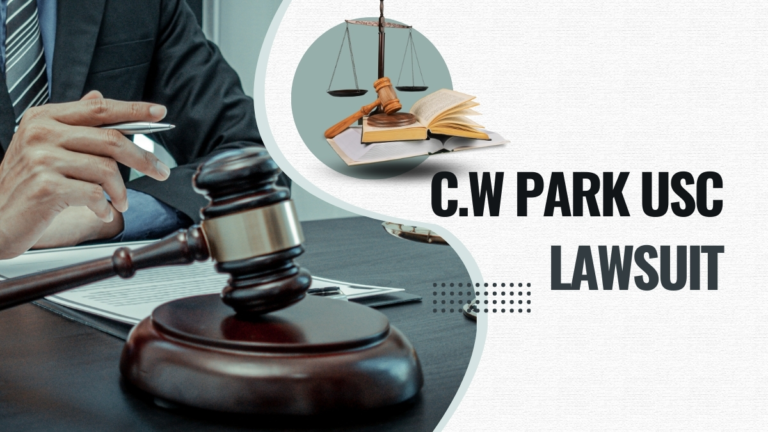In the realm of higher education, the landscape is often shaped by legal battles that not only impact institutions but also resonate across broader educational policies and societal perceptions. One such pivotal case currently unfolding is the C.W. Park USC lawsuit. This legal dispute has far-reaching implications, touching upon issues of transparency, accountability, and the fundamental responsibilities that educational institutions bear towards their stakeholders.
Understanding the C.W. Park USC Lawsuit
The C.W. Park USC lawsuit revolves around allegations of misconduct and breaches of academic integrity within the University of Southern California (USC). Central to the case is the accountability of faculty members and administrators in upholding ethical standards in education. The lawsuit, initiated by concerned parties within and outside the USC community, underscores the critical need for robust mechanisms to address such allegations and uphold the reputation and trust placed in academic institutions.
Legal and Institutional Ramifications
As legal proceedings continue, stakeholders are closely monitoring how the outcomes of the lawsuit could impact USC’s policies and practices. Beyond USC, other educational institutions are also taking note, realizing the importance of maintaining rigorous standards of academic conduct to preserve credibility and trust. This case serves as a catalyst for discussions on governance, compliance, and the ethical responsibilities that accompany leadership roles in education.
Societal and Educational Impacts
The repercussions of the C.W. Park USC lawsuit extend beyond the courtroom. They prompt reflections on broader issues such as the role of transparency in educational governance, the rights of students and faculty members, and the overall culture of accountability within academia. Moreover, the public scrutiny surrounding this case highlights the increasing demand for transparency and responsiveness from educational institutions in addressing allegations of wrongdoing.
Lessons in Accountability and Transparency
In navigating the complexities of the C.W. Park USC lawsuit, educational leaders and policymakers are compelled to reevaluate their approaches to institutional governance and risk management. The case underscores the imperative of fostering a culture where ethical conduct is not only encouraged but enforced through clear policies and mechanisms for reporting and addressing misconduct.
Looking Ahead: Evolving Educational Landscapes
As the legal saga unfolds, it serves as a poignant reminder of the evolving expectations placed on educational institutions in the 21st century. Beyond legal compliance, there is a growing emphasis on proactive measures to cultivate integrity, transparency, and accountability at all levels of academia. Institutions that embrace these values are better equipped to navigate challenges and maintain public trust amid scrutiny.
Conclusion
The C.W. Park USC lawsuit encapsulates more than a legal dispute; it symbolizes a broader discourse on the responsibilities and ethical obligations that define modern education. As stakeholders continue to monitor developments, the case prompts introspection and action towards fostering a more accountable and transparent educational ecosystem. By staying informed and engaged, we contribute to shaping a future where integrity and educational excellence go hand in hand.
In conclusion, the C.W. Park USC lawsuit serves as a poignant reminder of the importance of upholding ethical standards and fostering transparency within educational institutions. As this story unfolds, it underscores the ongoing need for vigilance in promoting accountability and integrity in higher education.
Follow mainguestpost for the freshest news and insights!
